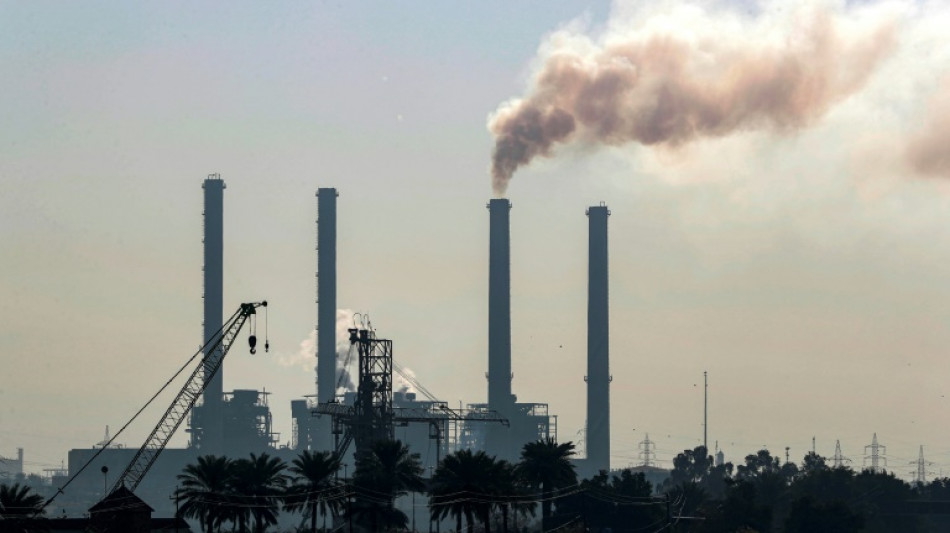
-
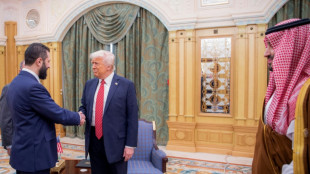 Trump presses Syria leader on Israel after lifting sanctions
Trump presses Syria leader on Israel after lifting sanctions
-
French PM to testify on child abuse scandal
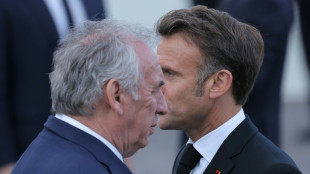
-
 Players stuck in middle with IPL, national teams on collision course
Players stuck in middle with IPL, national teams on collision course
-
Peru PM quits ahead of no-confidence vote
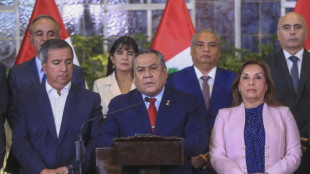
-
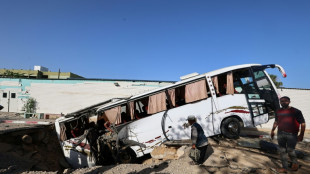 Strikes kill 29 in Gaza as hostage release talks ongoing
Strikes kill 29 in Gaza as hostage release talks ongoing
-
Court raps Brussels for lack of transparency on von der Leyen vaccine texts
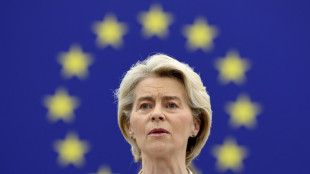
-
 France summons cryptocurrency businesses after kidnappings
France summons cryptocurrency businesses after kidnappings
-
Pakistan returns Indian border guard captured after Kashmir attack

-
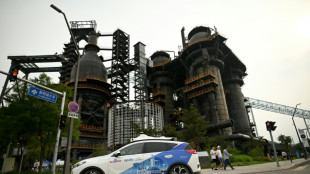 Baidu plans self-driving taxi tests in Europe this year
Baidu plans self-driving taxi tests in Europe this year
-
Trump meets new Syria leader after lifting sanctions
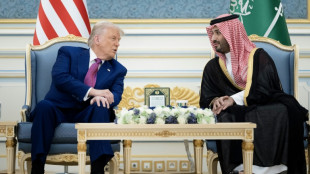
-
 Equity markets swing as China-US trade euphoria fades
Equity markets swing as China-US trade euphoria fades
-
Burberry warns 1,700 jobs at risk after annual loss

-
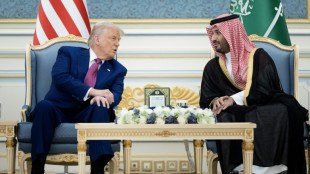 Trump to meet new Syrian leader after offering sanctions relief
Trump to meet new Syrian leader after offering sanctions relief
-
'Children are innocent': Myanmar families in grief after school air strike
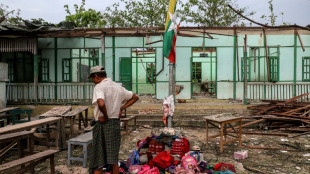
-
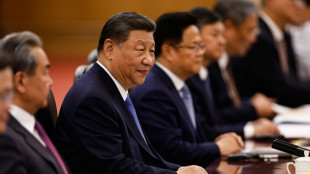 Colombia joins Belt and Road initiative as China courts Latin America
Colombia joins Belt and Road initiative as China courts Latin America
-
Australian champion cyclist Dennis gets suspended sentence after wife's road death

-
 Protection racket? Asian semiconductor giants fear looming tariffs
Protection racket? Asian semiconductor giants fear looming tariffs
-
S. Korea Starbucks in a froth over presidential candidates names

-
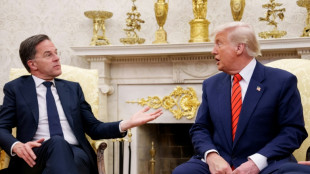 NATO hatches deal on higher spending to keep Trump happy
NATO hatches deal on higher spending to keep Trump happy
-
Eurovision stage a dynamic 3D 'playground': producer

-
 Cruise unleashes 'Mission: Impossible' juggernaut at Cannes
Cruise unleashes 'Mission: Impossible' juggernaut at Cannes
-
Suaalii in race to be fit for Lions Tests after fracturing jaw

-
 Pacers oust top-seeded Cavs, Nuggets on brink
Pacers oust top-seeded Cavs, Nuggets on brink
-
Sony girds for US tariffs after record annual net profit

-
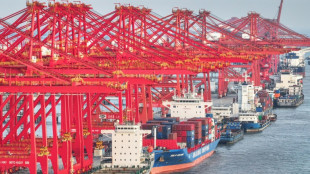 China, US slash sweeping tariffs in trade war climbdown
China, US slash sweeping tariffs in trade war climbdown
-
Human Rights Watch warns of migrant worker deaths in 2034 World Cup host Saudi Arabia

-
 Sony logs 18% annual net profit jump, forecast cautious
Sony logs 18% annual net profit jump, forecast cautious
-
China, US to lift sweeping tariffs in trade war climbdown
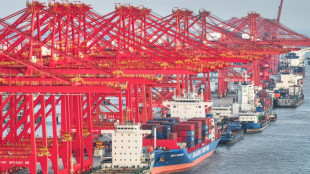
-
 Asian markets swing as China-US trade euphoria fades
Asian markets swing as China-US trade euphoria fades
-
Australian seaweed farm tackles burps to help climate
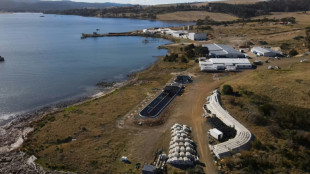
-
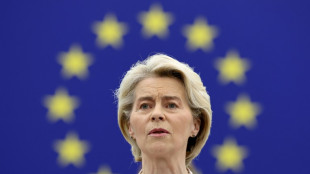 Judgment day in EU chief's Covid vaccine texts case
Judgment day in EU chief's Covid vaccine texts case
-
Trump set to meet Syrian leader ahead of Qatar visit
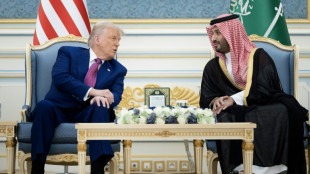
-
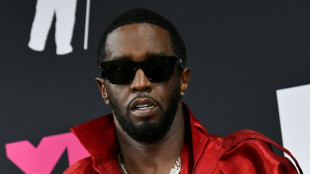 Misinformation clouds Sean Combs's sex trafficking trial
Misinformation clouds Sean Combs's sex trafficking trial
-
'Panic and paralysis': US firms fret despite China tariff reprieve
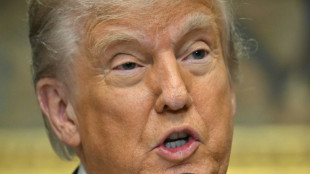
-
 Menendez brothers resentenced, parole now possible
Menendez brothers resentenced, parole now possible
-
'Humiliated': Combs's ex Cassie gives searing testimony of abuse
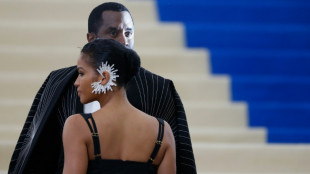
-
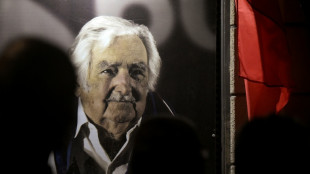 Latin America mourns world's 'poorest president' Mujica, dead at 89
Latin America mourns world's 'poorest president' Mujica, dead at 89
-
Masters champion McIlroy to headline Australian Open

-
 Sean Combs's ex Cassie says he coerced her into 'disgusting' sex ordeals
Sean Combs's ex Cassie says he coerced her into 'disgusting' sex ordeals
-
McIlroy, Scheffler and Schauffele together for rainy PGA battle
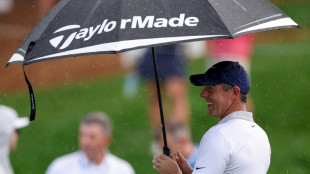
-
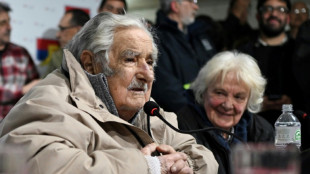 Uruguay's Mujica, world's 'poorest president,' dies aged 89
Uruguay's Mujica, world's 'poorest president,' dies aged 89
-
Lift-off at Eurovision as first qualifiers revealed

-
 Forest striker Awoniyi placed in induced coma after surgery: reports
Forest striker Awoniyi placed in induced coma after surgery: reports
-
'Kramer vs Kramer' director Robert Benton dies: representative
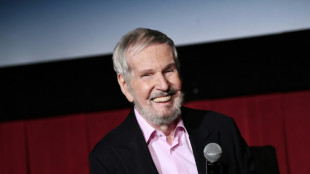
-
 Tatum suffered ruptured right Achilles in playoff defeat: Celtics
Tatum suffered ruptured right Achilles in playoff defeat: Celtics
-
US stocks mostly rise on better inflation data while dollar retreats
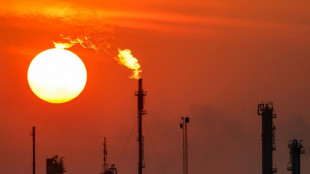
-
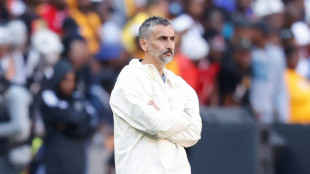 Winning farewell for Orlando Pirates' Spanish coach Riveiro
Winning farewell for Orlando Pirates' Spanish coach Riveiro
-
Lift-off at Eurovision as first semi-final takes flight

-
 UN relief chief urges action 'to prevent genocide' in Gaza
UN relief chief urges action 'to prevent genocide' in Gaza
-
Baseball pariahs Rose, Jackson eligible for Hall of Fame after league ruling


Iran says won't negotiate under 'intimidation' as Trump ramps up pressure
Iran said Monday it would not negotiate under "intimidation", after US President Donald Trump sought to ratchet up pressure on Tehran by ending a sanctions waiver that had allowed Iraq to buy electricity from its Shiite neighbour.
Iran's mission to the United Nations had indicated Sunday that Tehran might be open to talks aimed at addressing US concerns about the potential militarisation of its nuclear programme -- though not to ending the program completely.
But on Monday, Iran's top diplomat seemed to slam the door on such discussions, saying Tehran's nuclear programme was and always will be entirely peaceful and so there was "no such thing as its 'potential militarization'".
"We will NOT negotiate under pressure and intimidation. We will NOT even consider it, no matter what the subject may be," foreign minister Abbas Araghchi said on social media platform X.
Since returning to the White House in January, Trump has reinstated his policy of exerting "maximum pressure" against Iran, reimposing sweeping sanctions aimed at crushing its oil industry in particular.
The US State Department said Sunday the decision not to renew Iraq's sanctions waiver was made to "ensure we do not allow Iran any degree of economic or financial relief."
Iran supplies a third of Iraq's gas and electricity, providing Tehran with substantial income.
- 'Never take place' -
On Sunday, the Iranian mission to the United Nations had sounded a more conciliatory note, suggested Tehran might be willing to discuss certain issues.
"If the objective of negotiations is to address concerns vis-a-vis any potential militarization of Iran's nuclear program, such discussions may be subject to consideration," said a statement from the mission.
"However, should the aim be the dismantlement of Iran's peaceful nuclear program to claim that what (President Barack) Obama failed to achieve has now been accomplished, such negotiations will never take place," it said.
The waiver for Iraq was introduced in 2018, when Washington reimposed sanctions on Tehran after Trump abandoned a nuclear deal with Iran negotiated under Obama.
A spokesman for the US embassy in Baghdad on Sunday urged Baghdad "to eliminate its dependence on Iranian sources of energy as soon as possible."
"The President's maximum pressure campaign is designed to end Iran's nuclear threat, curtail its ballistic missile program, and stop it from supporting terrorist groups," the spokesman said.
The landmark 2015 deal that Obama helped negotiate between Tehran and major powers promised sanctions relief in return for Iran curbing its nuclear programme.
Tehran, which denies seeking nuclear weapons, initially adhered to the nuclear deal after Trump pulled out of it, but then rolled back commitments.
US officials estimate Iran would now need mere weeks to build a nuclear bomb if it chose to.
- 'All scenarios' -
Trump pulled out of the agreement over the objections of European allies, instead imposing US sanctions on any other country buying Iran's oil. The waiver was extended to Iraq as a "key partner" of the United States.
Iraq, despite having immense oil and gas reserves, remains dependent on such energy imports. But Baghdad said it had prepared "for all scenarios" regarding the waiver.
The ending of the energy waiver is expected to worsen the power shortages that affect the daily lives of 46 million Iraqis.
Gulf analyst Yesar Al-Maleki of the Middle East Economic Survey said Iraq will now face challenges in providing electricity, especially during summer.
To alleviate the impact, Iraq has several options including increasing imports from Turkey.
L.Maurer--VB
